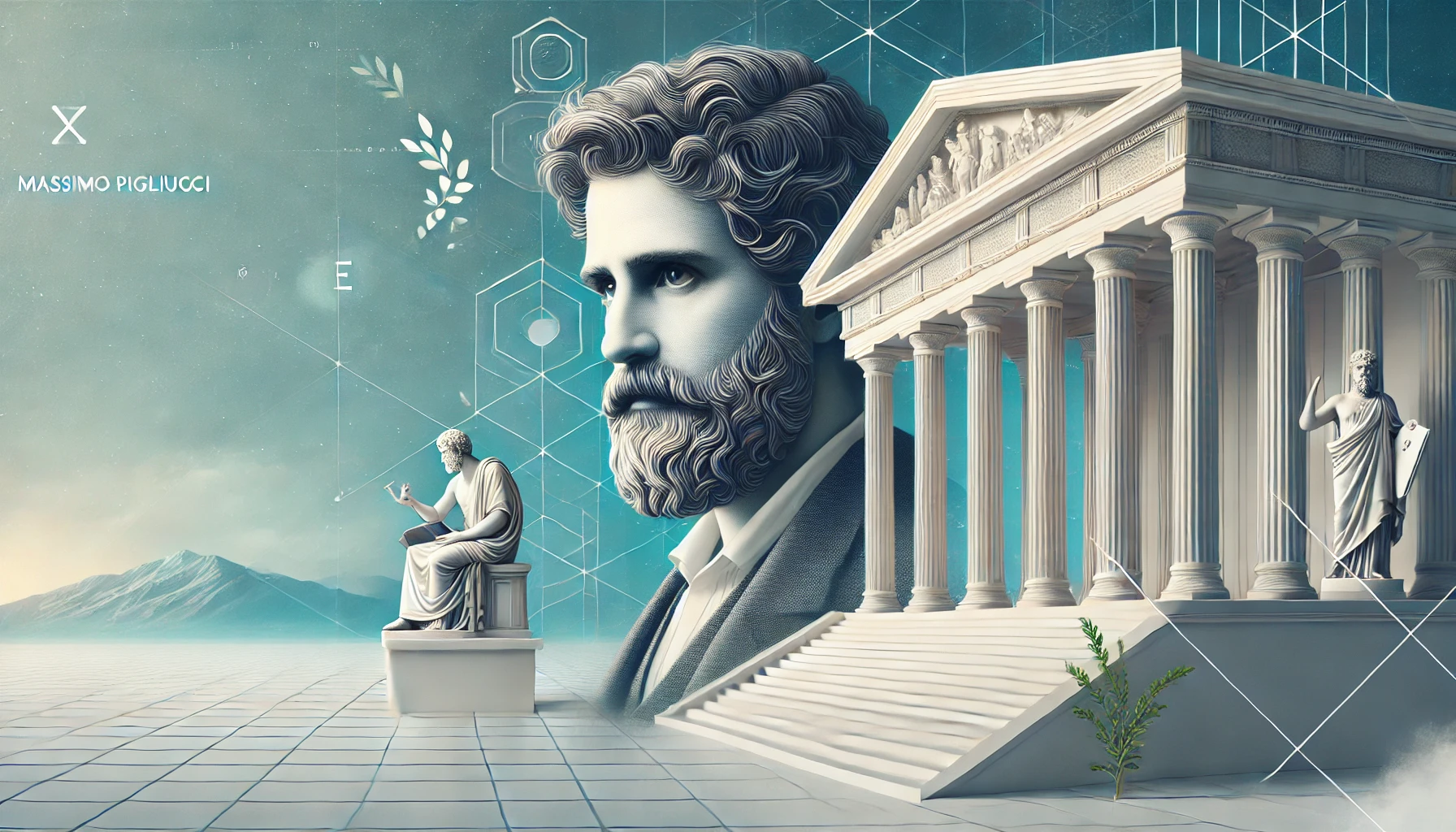Massimo Pigliucci is a prominent philosopher, author, and advocate of modern Stoicism. With his deep understanding of both ancient philosophy and contemporary science, Pigliucci has played a significant role in reviving Stoicism as a practical philosophy for modern life. Through his books, lectures, and public engagement, he has made Stoicism accessible to a wide audience, encouraging people to apply its timeless wisdom to navigate the complexities of the 21st century.
Who Is Massimo Pigliucci?
Born in Rome, Italy, Massimo Pigliucci began his academic career as a scientist, earning a Ph.D. in biology. However, his passion for philosophy led him to pursue further studies in this field, culminating in a Ph.D. in philosophy. Today, Pigliucci is a professor of philosophy at the City College of New York, where he focuses on the philosophy of science, ethics, and the intersection of science and philosophy.
Pigliucci’s interest in Stoicism began as a personal journey to find practical guidance in life. Over time, this interest evolved into a mission to share Stoic principles with others, helping them lead more thoughtful and purposeful lives.
Key Contributions of Massimo Pigliucci to Modern Stoicism
1. Bringing Stoicism to a Modern Audience
Massimo Pigliucci is best known for his efforts to make Stoicism accessible and relevant to contemporary audiences. His books, blog posts, and public talks have introduced thousands of people to Stoic philosophy, emphasizing its practicality and applicability to everyday life.
“We suffer more in imagination than in reality.” – Massimo Pigliucci (paraphrasing Seneca)
Impact on Stoicism: By paraphrasing and contextualizing Stoic teachings, Pigliucci has made the philosophy relatable to modern readers, showing how it can help them manage stress, improve decision-making, and live more ethically.
2. Authoring Influential Books on Stoicism
Pigliucci has written several influential books that explore Stoic philosophy in depth, making it accessible to both beginners and those with a deeper interest in philosophy.
- How to Be a Stoic: This book serves as an introduction to Stoicism, guiding readers on how to live a virtuous and fulfilling life by embracing Stoic principles. Pigliucci combines personal anecdotes with philosophical insights to create a practical guide to Stoicism.
Read How to Be a Stoic on Goodreads
- A Handbook for New Stoics: Co-authored with Gregory Lopez, this book offers 52 week-by-week exercises to help readers apply Stoic principles in their daily lives. It’s a hands-on guide for anyone looking to integrate Stoic practices into their routine.
Read A Handbook for New Stoics on Goodreads
3. Promoting the Practical Application of Stoicism
Pigliucci emphasizes the practical side of Stoicism, encouraging people to use the philosophy as a tool for self-improvement and ethical living. He argues that Stoicism is not just a set of abstract ideas but a way of life that can help individuals navigate challenges with resilience and wisdom.
“The point of Stoicism is not to make us into unfeeling robots, but to help us become better human beings by improving our character and judgment.” – Massimo Pigliucci
Impact on Stoicism: Through his work, Pigliucci has helped shift the perception of Stoicism from a dry, academic subject to a dynamic, practical philosophy that can enrich our lives.
4. Bridging Stoicism and Modern Science
With his background in both science and philosophy, Pigliucci has been uniquely positioned to explore the connections between Stoicism and modern scientific understanding. He has written extensively about how Stoic principles align with contemporary psychology, particularly in areas such as cognitive-behavioral therapy (CBT).
“Stoicism is about the art of living; it is about keeping one’s head when all about one is losing theirs.” – Massimo Pigliucci
Impact on Stoicism: By integrating scientific insights with Stoic philosophy, Pigliucci has demonstrated that Stoicism is not just a relic of the past but a living philosophy that continues to offer valuable guidance in the modern world.
5. Engaging with the Stoic Community
Massimo Pigliucci is an active participant in the global Stoic community, contributing to events like Stoicon, an annual conference dedicated to Stoic philosophy. He also engages with audiences through his blog, How to Be a Stoic, where he discusses Stoic principles and their application to everyday life.
“The goal is not to escape the world, but to live in it fully and ethically, guided by reason and virtue.” – Massimo Pigliucci
Impact on Stoicism: By engaging directly with the Stoic community, Pigliucci has fostered a sense of shared purpose and collective exploration among those interested in Stoic philosophy.
Conclusion
Massimo Pigliucci has made a significant impact on the modern Stoic movement, bridging the gap between ancient wisdom and contemporary life. Through his writings, lectures, and active engagement with the Stoic community, he has helped countless individuals discover the benefits of Stoicism and incorporate its teachings into their daily lives. Whether you’re new to Stoicism or looking to deepen your understanding, Pigliucci’s work offers valuable insights into how this ancient philosophy can help you lead a more thoughtful, ethical, and fulfilling life.

